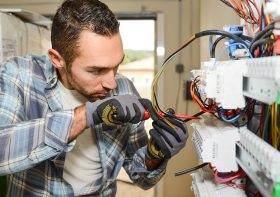when television hosts take their shows home they fuel nostalgia

Television has always been a medium deeply intertwined with nostalgia. It has the unique ability to transport viewers to different eras, evoke memories, and create emotional connections. In recent years, there has been a notable resurgence in nostalgia, fueled by various factors including the revival of classic TV shows, the popularity of retro aesthetics, and the influence of social media. One intriguing aspect of this nostalgia wave is the phenomenon of television hosts taking their shows home. This trend not only reconnects audiences with beloved personalities but also taps into the collective longing for simpler times and familiar faces. In this essay, we explore how television hosts bringing their shows home fuel nostalgia, examining the psychological, cultural, and technological dimensions of this phenomenon.
The Psychological Appeal of Nostalgia
Nostalgia, often characterized by a longing for the past, serves several psychological functions. It provides individuals with a sense of continuity, reaffirming their identities by connecting them to their personal histories and cultural heritage. Television hosts, as familiar figures in people’s lives, serve as conduits for these nostalgic feelings. When they bring their shows home, they create a sense of comfort and familiarity, offering viewers a nostalgic refuge from the complexities of the present.
Moreover, nostalgia has been found to counteract loneliness, boredom, and anxiety by fostering social connectedness and positive emotions. Television hosts, through their interactions with audiences, forge parasocial relationships characterized by feelings of closeness and intimacy. Bringing their shows home allows hosts to bridge the physical and emotional distance between themselves and their viewers, eliciting warm memories and shared experiences.
Cultural Significance of Television Hosts
Television hosts play a significant role in shaping cultural landscapes and collective memories. From late-night talk show hosts to daytime personalities, they become synonymous with specific periods in television history. Their catchphrases, mannerisms, and on-screen personas become iconic symbols of the zeitgeist, evoking nostalgia for bygone eras.
When hosts take their shows home, they not only revive these cultural touchstones but also invite audiences to participate in a form of cultural preservation. By revisiting familiar settings, referencing past episodes, and engaging in nostalgic banter, hosts create a sense of continuity between past and present. This continuity reassures viewers that, despite the passage of time, some things remain unchanged—a comforting thought in an ever-evolving world.
Technological Advances and Nostalgic Consumption
The advent of streaming platforms and digital media has revolutionized the way audiences consume television content. While traditional broadcast television remains popular, many viewers now prefer on-demand services that offer greater flexibility and variety. This shift in viewing habits has prompted television hosts to adapt their formats and delivery methods to cater to modern audiences.
Bringing their shows home allows hosts to leverage technology to evoke nostalgia in new and innovative ways. Through social media platforms, hosts can interact directly with fans, sharing behind-the-scenes moments, hosting virtual watch parties, and reminiscing about past episodes. These digital interactions not only deepen the sense of nostalgia but also create opportunities for audiences to engage with their favorite hosts on a more personal level.
Furthermore, the accessibility of archival footage enables hosts to curate nostalgic experiences for both longtime fans and new audiences. By revisiting classic moments, interviewing former guests, and reflecting on their careers, hosts can tap into the collective memory bank of television history. This curated nostalgia serves as a bridge between past and present, allowing viewers to rekindle their affection for beloved shows and personalities.
Implications for Television Production and Audience Engagement
The trend of television hosts bringing their shows home has significant implications for both content creators and audiences. From a production standpoint, it offers hosts greater creative control and flexibility, allowing them to experiment with new formats and connect with audiences on a more intimate level. By embracing nostalgia, hosts can leverage their existing fan bases while attracting new viewers who are drawn to the allure of retro charm.
For audiences, the appeal lies in the opportunity to relive cherished memories and experience the magic of television from the comfort of their own homes. Whether it’s watching reruns of classic episodes or tuning in to live streams featuring familiar faces, viewers derive immense pleasure from the nostalgic journey facilitated by television hosts. In a world characterized by constant change and uncertainty, these nostalgic connections provide a sense of stability and reassurance.
Conclusion
Television hosts bringing their shows home represent a convergence of psychological, cultural, and technological forces that fuel nostalgia in captivating ways. By tapping into the collective longing for simpler times and familiar faces, hosts create a sense of continuity and connection that resonates deeply with audiences. Whether it’s through social media interactions, archival footage, or virtual experiences, the nostalgic resurgence facilitated by television hosts offers viewers a welcome escape from the pressures of modern life. As nostalgia continues to shape the landscape of popular culture, television hosts stand as torchbearers of a bygone era, guiding audiences on a journey down memory lane.




Leave a Reply